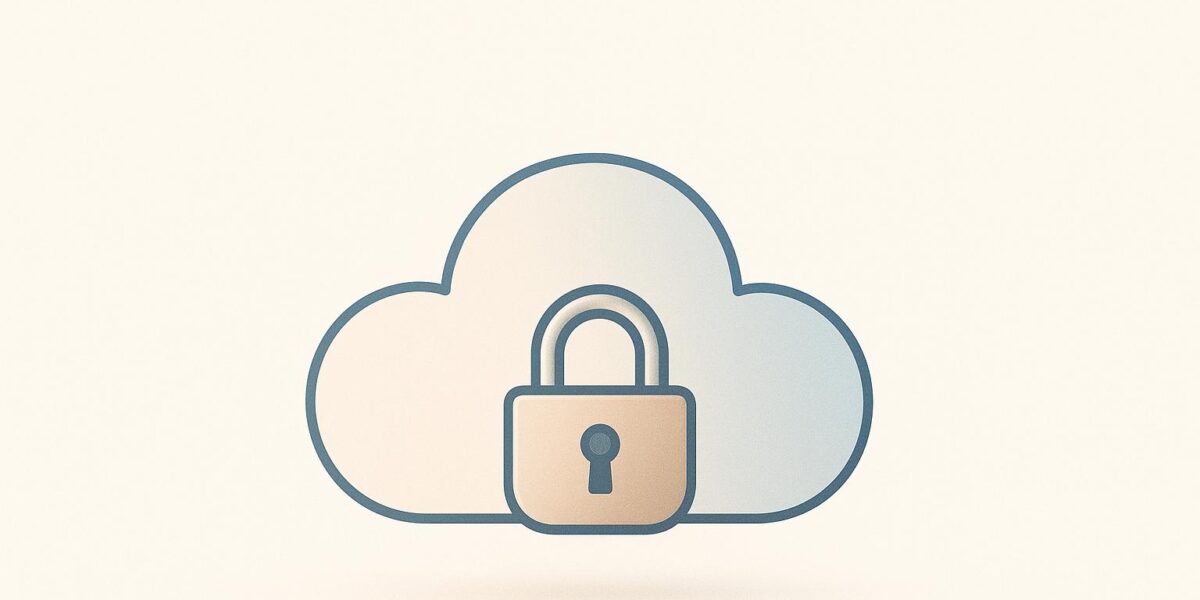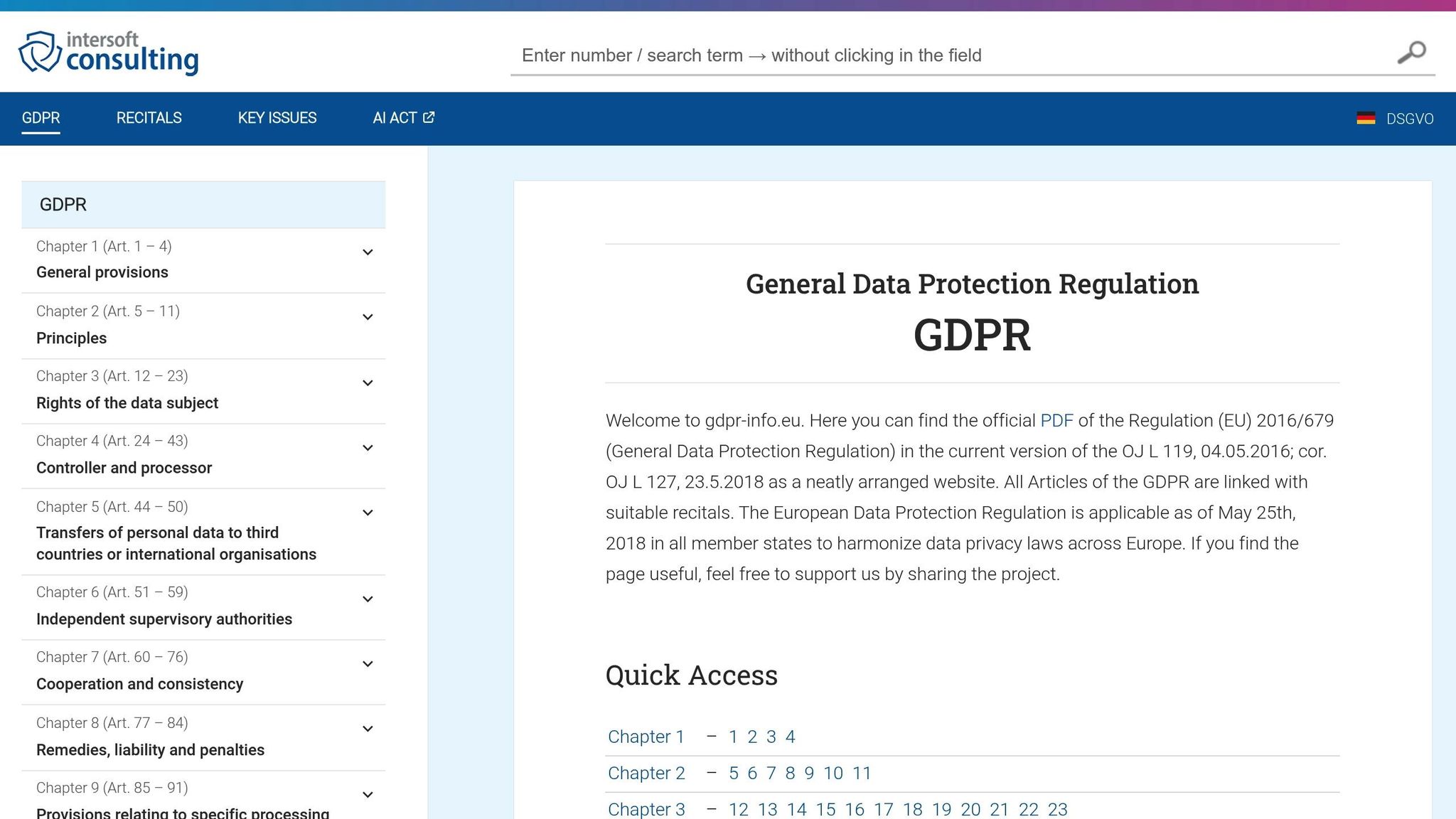Cloud Compliance for WordPress Hosting

Cloud compliance for WordPress hosting ensures your site adheres to regulations like GDPR, HIPAA, and PCI DSS while protecting sensitive data and building customer trust. Here’s what you need to know:
- Why It Matters: Compliance helps safeguard data, maintain certifications, and boost your brand’s credibility.
- Key Challenges: Complex regulations, technical setups, and resource allocation often complicate compliance efforts.
- Industry Standards: GDPR (EU data rules), HIPAA (healthcare), and SOC 2 (financial services) are examples of sector-specific requirements.
- Steps to Implement:
- Use encryption, role-based access, and backups.
- Conduct regular security testing (vulnerability scans, audits).
- Keep documentation updated (privacy policies, incident logs).
Quick Tip: Choosing a hosting provider with certifications like ISO 27001, SOC 2, or HIPAA can simplify compliance for your WordPress site.
HIPAA-Compliant Web Hosting Services for WordPress For 2024
WordPress Hosting Compliance Standards
WordPress hosting standards have developed to address the growing need for data protection. These frameworks help organizations implement proper security measures when managing sensitive information in cloud environments.
GDPR and International Requirements

The General Data Protection Regulation (GDPR) enforces strict rules for WordPress sites handling data from EU residents. Key areas of compliance include:
| GDPR Requirement | WordPress Implementation | Technical Consideration |
|---|---|---|
| Data Processing Records | Document data collection points | Configure forms and analytics tracking |
| User Consent Management | Use cookie consent plugins | Implement opt-in mechanisms |
| Data Access Rights | Enable user data export features | Set up automated data retrieval systems |
| Right to be Forgotten | Configure data deletion protocols | Implement secure data removal processes |
Additionally, industries often have their own specific compliance needs beyond these international standards.
Sector-Specific Compliance Rules
Certain industries require additional measures for cloud-hosted WordPress sites. For example, healthcare organizations must meet HIPAA standards by incorporating:
- Encrypted data transmission
- Access control systems
- Regular security evaluations
- Detailed audit logs
In financial services, SOC 2 compliance is critical. It involves:
| Requirement Category | Implementation Details |
|---|---|
| Security Controls | Multi-factor authentication, intrusion detection |
| Availability Measures | Uptime monitoring, disaster recovery planning |
| Processing Integrity | Validated data handling |
| Confidentiality | Data encryption, strict access restrictions |
These rules are constantly changing, and organizations must ensure their WordPress hosting setup stays aligned with new compliance demands while maintaining efficiency.
Cloud Compliance Implementation Steps
Setting up cloud compliance for WordPress hosting involves a structured process focusing on data protection, security testing, and thorough documentation.
Data Protection Methods
Effective WordPress cloud hosting relies on multiple layers of security, including encryption, access controls, backups, and network defenses.
| Protection Layer | Actions | Purpose |
|---|---|---|
| Data Encryption | SSL/TLS certificates, database encryption | Protects data during transfer and storage |
| Access Control | Role-based permissions, MFA setup | Secures user access to sensitive data |
| Backup Systems | Automated daily backups, encrypted storage | Ensures data recovery in case of incidents |
| Network Security | Web Application Firewall (WAF), DDoS protection | Safeguards against external threats |
Once these measures are in place, it’s important to test them regularly to ensure they perform as expected.
Security Testing Requirements
Testing is essential to confirm the reliability of your security measures and identify any vulnerabilities.
| Testing Type | Frequency | Focus Areas |
|---|---|---|
| Vulnerability Scans | Weekly | Plugin security, core file integrity |
| Penetration Testing | Quarterly | Infrastructure and access control checks |
| Compliance Audits | Annually | Documentation and control effectiveness |
| Performance Monitoring | Continuous | Uptime and response time tracking |
Regular testing not only strengthens your security but also helps maintain compliance with regulatory standards.
Required Compliance Records
Keeping accurate and up-to-date documentation is critical for passing audits and demonstrating compliance.
| Document Type | Purpose | Update Frequency |
|---|---|---|
| Privacy Policy | Explains user data handling practices | Quarterly review |
| Data Processing Agreements | Details third-party service usage | Annual renewal |
| Security Incident Logs | Records security events and responses | Real-time updates |
| Compliance Certificates | Confirms adherence to regulations | Annual certification |
Automating documentation processes can save time and ensure consistency. Regular updates to these records help maintain compliance and streamline audits.
sbb-itb-d55364e
Selecting Compliant WordPress Hosting
Choosing the right hosting provider is a key step in maintaining compliance for your WordPress site. For operations that require strict regulatory adherence, look for hosting providers with strong security features and recognized compliance certifications. These are crucial for implementing the necessary security measures. A reliable hosting infrastructure is the backbone of your compliance efforts.
Key Hosting Features to Look For
When evaluating WordPress hosting for compliance, certain features are essential:
| Feature | Requirements | Compliance Role |
|---|---|---|
| Data Location | Multiple datacenter options, geographic redundancy | Ensures data sovereignty and GDPR compliance |
| Security Measures | WAF, DDoS protection, real-time monitoring | Protects data integrity and prevents breaches |
| Backup Systems | Automated, provider-managed backups with encryption | Supports data recovery and business continuity |
| Access Controls | Integrated access control and audit trail features | Enables detailed tracking and accountability |
| Certifications | ISO 27001, SOC 2, HIPAA documentation | Demonstrates adherence to regulatory standards |
Additionally, hosting providers should offer tools like automated security scans, malware detection, and regular vulnerability checks to help you maintain compliance.
Equally important is having access to expert support to guide you through the complexities of regulatory requirements.
Expert Compliance Support
Expert support can simplify the process of staying compliant. The right hosting provider should offer assistance in these areas:
| Support Area | Benefits | Implementation |
|---|---|---|
| Compliance Analysis | Tailored assessments and risk evaluations | Helps with setup and ongoing monitoring |
| Technical Guidance | Assistance with configuration and security improvements | Ensures updates and maintenance are handled |
| Documentation Help | Audit preparation and certification assistance | Keeps compliance on track |
| Emergency Response | 24/7 breach notification and incident response | Quickly addresses and resolves security issues |
Enterprise-level hosting should also meet specific regulatory requirements, such as:
- Adhering to GDPR for data handling
- Maintaining ISO 27001 certification
- Supporting industry-specific compliance needs
- Providing detailed security documentation
Next Steps for Cloud Compliance
Ensuring cloud compliance for WordPress hosting requires ongoing attention to monitoring, security testing, and proper documentation.
| Action Area | Implementation Steps | Compliance Impact |
|---|---|---|
| Security Monitoring | Use continuous monitoring tools and perform regular security scans. | Helps detect threats early and maintain high security standards. |
| Documentation | Maintain updated security logs. | Fulfills audit requirements and shows accountability. |
| Update Management | Schedule regular security patches and system reviews. | Minimizes risks from outdated software or components. |
| Access Control | Regularly audit user permissions and enforce role-based access. | Strengthens data protection and ensures user accountability. |
To build on these practices, focus on a proactive approach to compliance. Schedule routine security tests, keep documentation current, and automate scans to address both existing and new regulations. Regularly apply patches, automate monitoring, and log all updates and incidents to ensure nothing slips through the cracks.
When it comes to external support, choosing the right hosting provider is critical. Look for providers offering enterprise-level security features and holding certifications like ISO 27001, SOC 2, or GDPR compliance. Providers who prioritize frequent security updates can help ensure your hosting environment stays aligned with evolving standards.
For tailored solutions, consider working with WordPress hosting specialists like Osom WP Host, who can help you meet your compliance needs effectively.
FAQs
What are the main differences between GDPR, HIPAA, and SOC 2 compliance for WordPress hosting, and how can I figure out which one applies to my website?
The key differences between GDPR, HIPAA, and SOC 2 compliance lie in their purpose and the types of data they protect. GDPR focuses on protecting the personal data of individuals in the European Union, regardless of where your business is located. HIPAA is specific to the United States and governs the security and privacy of health information. SOC 2, on the other hand, is a framework for managing customer data in a way that ensures trust and security, commonly used by service providers.
To determine which compliance standard applies to your WordPress site, consider the nature of your business and the type of data you handle. For example, if you process EU customer data, GDPR is likely relevant. If your site deals with healthcare information in the U.S., HIPAA compliance is essential. SOC 2 may apply if you provide services to customers and need to demonstrate a secure environment. Consulting with a compliance expert or a hosting provider familiar with these standards can help ensure your site meets the necessary requirements.
How can I verify that my WordPress hosting provider complies with industry standards like ISO 27001 and SOC 2?
To confirm that your WordPress hosting provider complies with standards like ISO 27001 and SOC 2, start by reviewing their certifications and security practices. Ensure they regularly conduct vulnerability assessments and audits to maintain compliance.
If you’re unsure where to begin, you can work with experts who specialize in matching businesses with hosting providers tailored to specific compliance and security needs. This ensures your hosting solution not only meets industry standards but also aligns with your business goals and requirements.
How can I keep my WordPress site’s compliance documentation up to date?
To maintain up-to-date compliance documentation for your WordPress site, start by conducting regular vulnerability assessments to identify and address potential risks. Document any changes made to your site’s infrastructure, plugins, or hosting environment, ensuring they align with compliance standards relevant to your business or industry.
Additionally, schedule periodic reviews – such as quarterly or biannual audits – to verify that your documentation reflects the current state of your site. This includes updating records of security policies, access controls, and any third-party services you use. Staying proactive helps ensure your site remains compliant and protected against potential threats.
